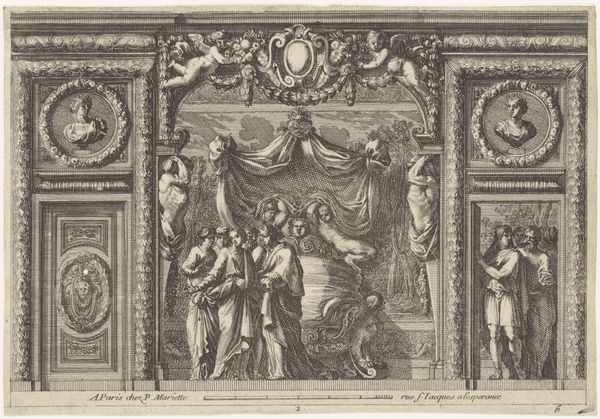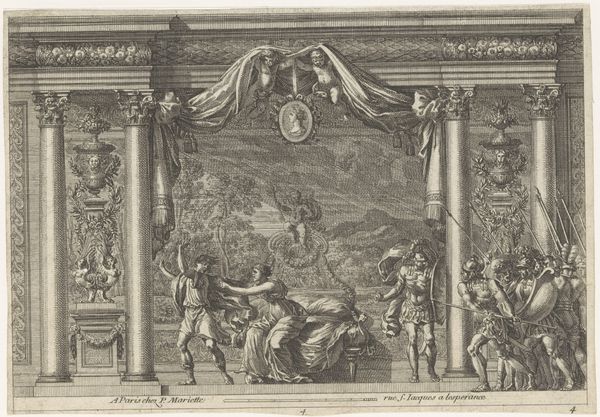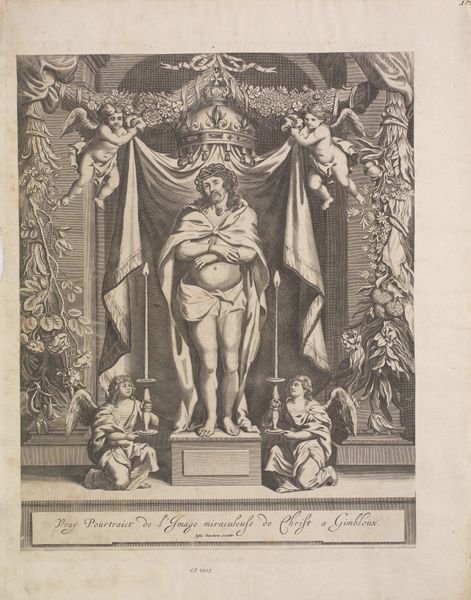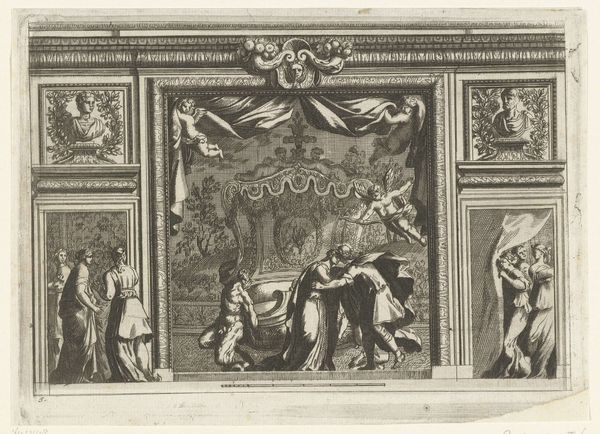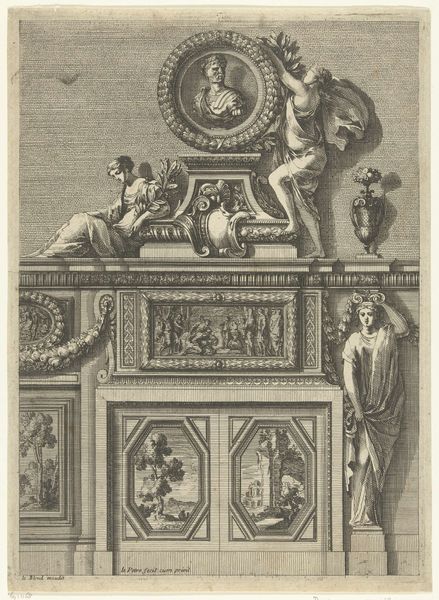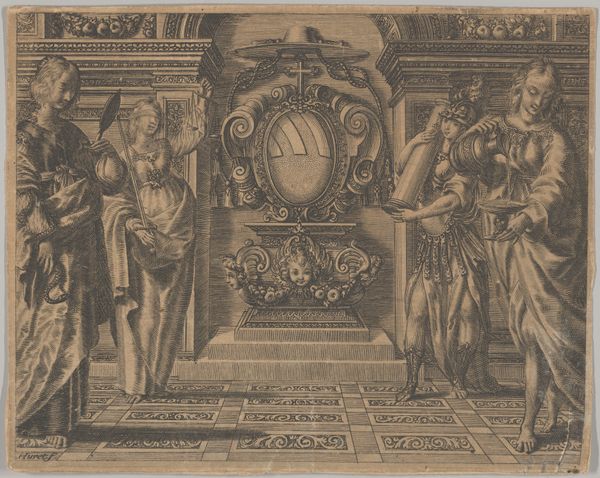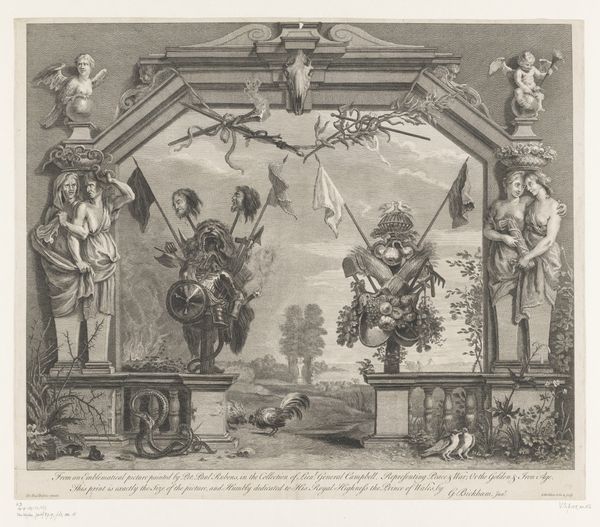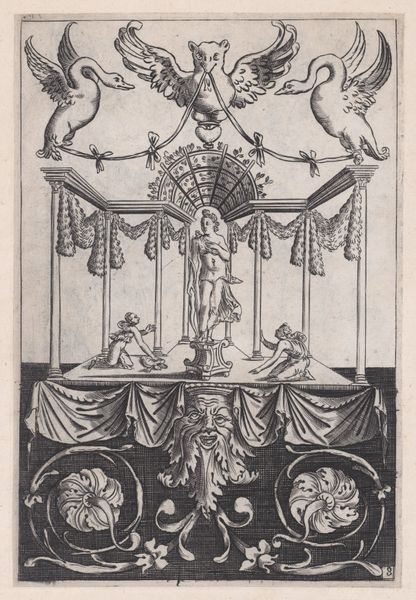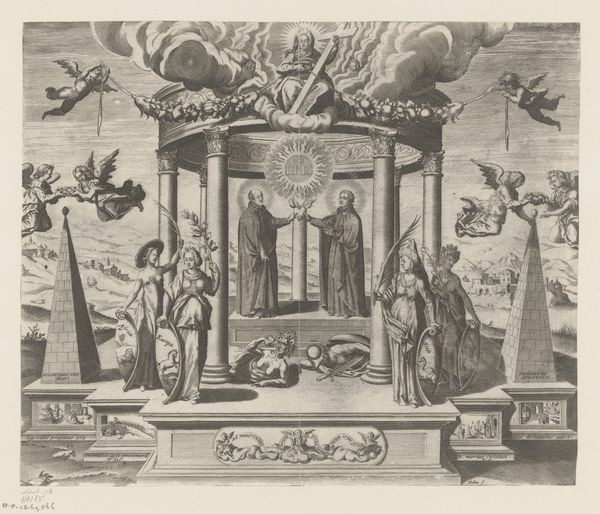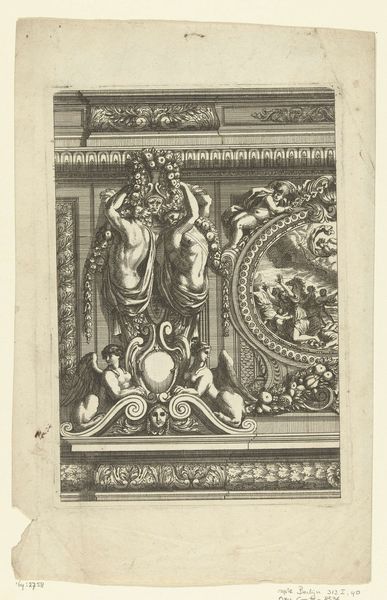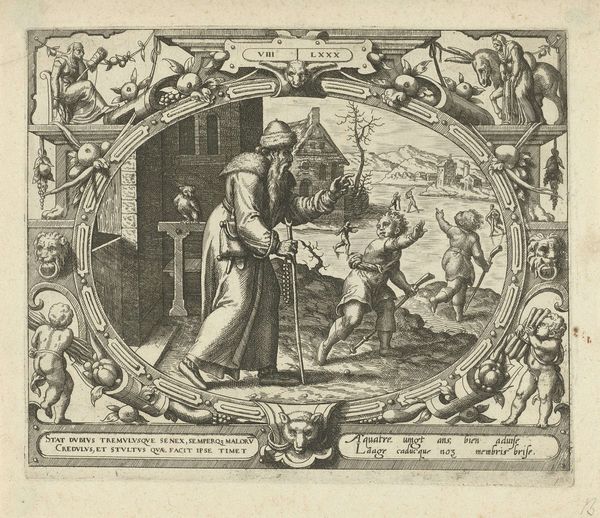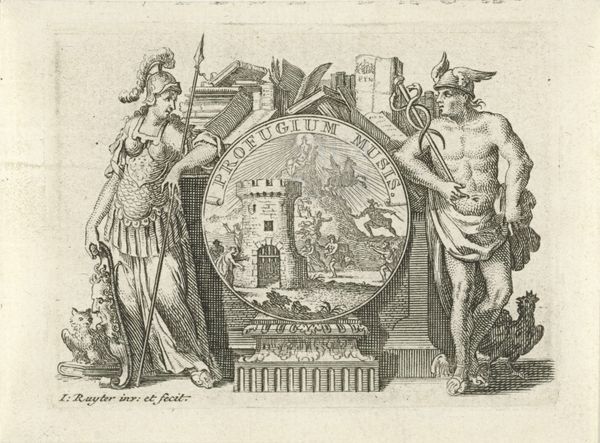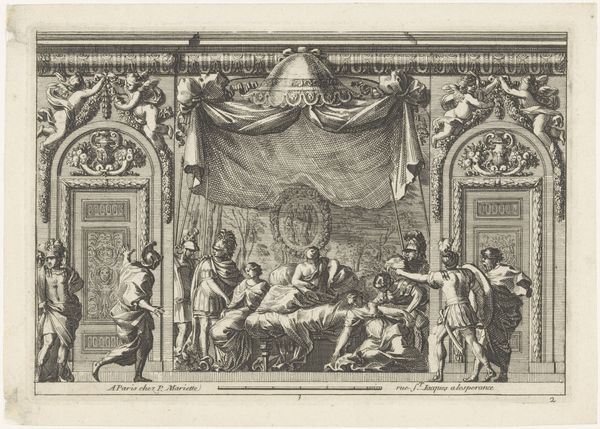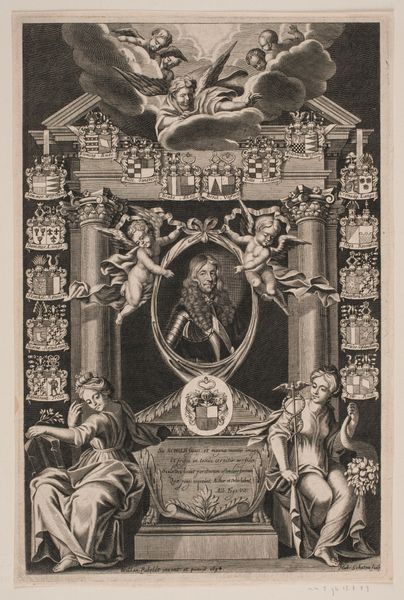
Three cupids in front of a facade with pilasters, one holding a trident and another a large shell 1515 - 1600
0:00
0:00
drawing, print, intaglio, engraving
#
drawing
#
allegory
# print
#
intaglio
#
figuration
#
11_renaissance
#
cupid
#
engraving
Dimensions: Sheet: 7 11/16 × 18 3/8 in. (19.5 × 46.7 cm) Plate: 7 9/16 × 14 in. (19.2 × 35.6 cm)
Copyright: Public Domain
This print, by an anonymous artist, was made using engraving, a process that was popular in the 16th century. Take a close look and you'll see that the image is made up of thousands of tiny lines. To create them, the artist would have used a tool called a burin to manually cut lines into a metal plate. This required incredible skill and precision, as each line contributes to the overall composition and tonal range. The plate was then inked, and the image transferred to paper through a printing press. Engraving was a highly skilled and labor-intensive craft, often associated with workshops and the transmission of knowledge through apprenticeships. The medium lent itself well to the dissemination of images, allowing for the mass production of prints that could circulate widely. Considering the labor involved and its reproductive capacity, this print reveals the increasing commodification of art during the Renaissance, and how this impacted the role of the artist in society.
Comments
No comments
Be the first to comment and join the conversation on the ultimate creative platform.
